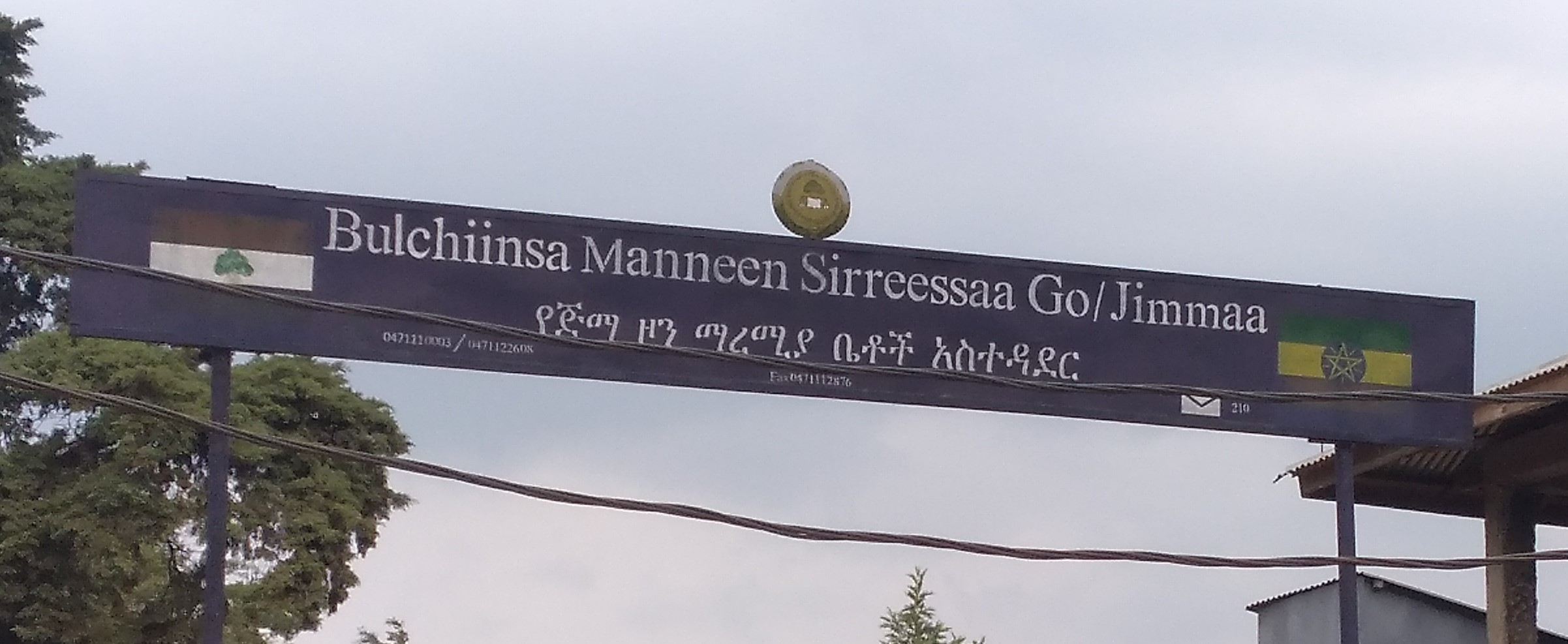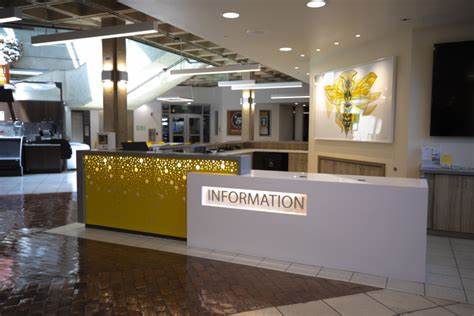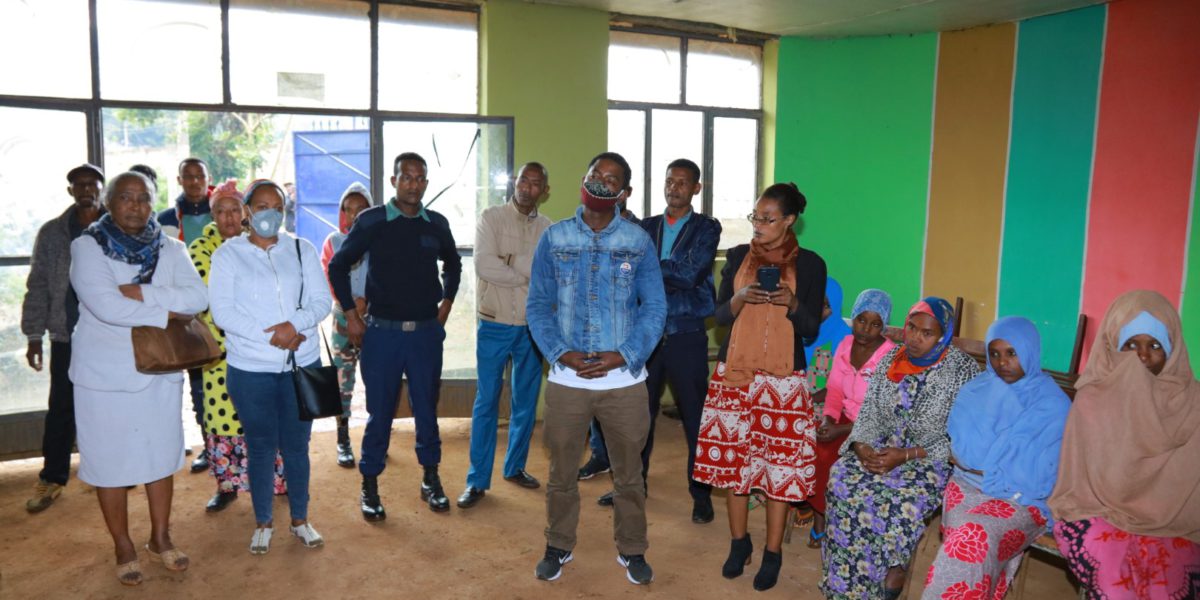Jimma Zone Prison Administration Information Desk
Services provided by our facility
With an adequate capacity to protect the human rights of the
convict, the
basic needs of food and shelter, bed linen, free medical services, and government hospital services
are provided.
Our institution aspires to make inmates a law-abiding and a good citizen.
Within our facility the following services are provided:
- Waiting for the prisoners to be sentenced in accordance with the court order or decision, bringing
the inmates to court,
- Correction and edification of inmates,
- Protecting the prisoners,
- Providing food and shelter for prisoners,
- Carry out essential tasks for the mind and body care of prisoners.
- After the inmates are released, they will be able to manage their own education, vocational
training, social and advisory services to help them manage themselves and become law-abiding.
- When ordered by the court to bring in inmates from federal penitentiaries to regions or from one
prison to another,
- Collecting and consolidating national prisoners' information and statistics.
- According to the law, prisoners are released on probation,
- According to the law, convicts may give permission to the authorities to remedy pardon,
- Work with regional prisons and provide vocational, technical and advisory support.
Visitor Guidelines & Information
Visitation with people committed to the Ethiopia Department of Public Safety & Corrections (DPS&C) is
a privilege. Visitation may be restricted, denied or suspended if an imprisoned person and/or
visitor does not follow the Department's visitation rules.
Prospective visitors may refer to Department Regulation OP-C-9 for specific rules governing
visitation. The regulation may also be obtained by requesting a copy from the facility. Items
considered to be contraband, including any type of weapon, firearm or any other item detrimental to
the security of the facility, are not allowed. Prohibited items and other personal possessions
(wallet, purse, cash, etc.) must be left in the visitor's locker bulit for visitor's stuffs for the
duration of the visit.
The following are the rules that a visitor must follow in order to be allowed to visit an
inmate in our facility:
- Visiting List: In order to visit a person in prison, the visitor must be on
the person's approved visiting list. The imprisoned person has been given information on how
to add someone to their visiting list. If you are uncertain as to whether you are on a person
in prison's approved visiting list, please contact the person you wish to visit. Do not call
the facility for this information; it will not be provided over the phone.
- Searches: All visitors, including minors, are subject to searches of their
property,
automobile and person. These searches shall be conducted by trained staff in a professional
manner that minimizes indignity to the visitor while still accomplishing the objective of the
search. Additionally, visitors shall be subject to additional searches using metal detectors
and ion scanning equipment. Any person refusing to be searched at any time shall not be
permitted to enter the facility and a visit may be terminated if a visitor refuses to be
searched, or if contraband or other prohibited property or items are found on the visitor
or in the visitor's property. If a visitor does not wish to be searched either by hand or
by using other means, the visitor should not attempt to enter a DPS&C facility.
- Registration: Visitors must be registered by staff prior to entering the
visiting area.
- Identification: All visitors who are 18 years old or older shall be required
to show an identification card(id) the first time they visit the facility. After the first
time of visit our system will store the picture of the visitor's identification card(id).
The forms of identification accepted by the DPS&C are:
- Valid driver's license from the state of residence
- Valid state identification card from the state of residence
- Valid military identification card (active duty only)
- Valid passport
- Children: Visitors under the age of 18 years of age must be accompanied by
their parent or legal guardian at all times while on facility grounds. Children shall not be
left alone at any time while on facility grounds. Parents or legal guardians shall be
responsible for the behavior of their children and a visit may be terminated if the children
become disruptive.
- Dress standards: Visitors shall wear clothing that poses no threat to the
security or maintenance of order at the facility.
The following standards are to be met:
- Clothing that is similar in appearance to the clothing worn by imprisoned people is
prohibited.
- Clothing that is similar in appearance to the clothing worn by correctional officers, i.e.
camouflage, blue BDU's, etc. is prohibited.
- Sheer or transparent clothing is not permitted.
- Swim suits are not permitted.
- Skirts, shorts, skorts, culottes, and dresses must be no shorter than three inches
above the kneecap and not have deep or revealing slits.
- Strapless, tube and halter tops, tank tops, and strapless dresses are not
permitted.
- Tops that expose the midriff are not permitted.
- Tight fitting pants, such as stirrup, spandex, lycra, or spandex-like athletic pants,
aerobic/exercise tights or leotards shall not be worn.
- Undergarments must be worn at all times and cannot be exposed.
- Clothing with revealing holes or tears higher than one inch above the kneecap is not
permitted.
- Clothing or accessories with obscene or profane writing, images, or pictures is not
permitted.
- Gang or club-related clothing or insignia indicative of gang affiliation is not
permitted.
- Shoes must be worn at all times. Except for infants who are carried, house slippers
or shower shoes are not allowed.
- Hats or other head coverings are not permitted, except as required by religious
beliefs.
- Items not permitted: Visitors shall not be permitted to possess or carry the
following items into the visiting area: controlled substances, alcoholic beverages, marijuana,
tobacco and tobacco related items, cameras, video, and audio recording equipment and
electronic devices, including but not limited to cellular telephones, pagers, BlackBerries,
radios, tape recorders, etc.
- Medication: Only prescribed medication that is life-saving or life-sustaining,
such as nitroglycerine pills, inhalers, oxygen, etc., shall be permitted. Medication shall be
limited in quantity to no more than that required for the duration of the visit. Visitors must
inform the staff at the visiting desk that they are in possession of such medication.
- Infants: If the visitor has an infant child, the following items shall be
permitted: four diapers, two jars of vacuum sealed baby food, two plastic bottles of milk or
juice, one change of clothing, one baby blanket (maximum width and length not to exceed 48
inches), and one clear plastic bag of baby wipes. These items, except the baby blanket, must
be stored in a single clear plastic container (i.e., gallon size zip-lock bag.) All items are
subject to search.
- Money: Visitors shall not give any money to an imprisoned person. All
state correctional facilities utilize Telebirr for money deposits to people in prison.
Telebirr allows family members and friends to make a deposit to a person in prison's account
in a number of ways via Ethio-telecom shops, mail, internet, telephone, kiosks at the correctional
facility,
and Moneygram locations.
- Contact between people in prison and visitors: People in prison who have
contact visits may embrace (hug) and exchange a brief kiss, to indicate fondness, not a
lingering kiss, with their visitor at beginning and end of the visit. During the visit,
the only contact permitted is holding hands. Excessive displays of affection or
sexual misconduct between people in prison and visitors is strictly prohibited. Small
children may be permitted to sit on the lap of the visitor or person in prison.
Any improper contact between a person in prison and visitor shall be grounds for stopping
the visit immediately. Some people in prison are restricted to non-contact visits. In
these cases, there shall be no physical contact or touching at all between the person in
prison and the visitors. Restroom breaks may be authorized, however, visitors will
be subject to the entire search process again.
- Restrictions on visits with minors: People in prison who have a current or
prior conviction for a sex crime involving a minor child family member, or who have a
documented history of sex abuse with a minor child family member, are ineligible to visit
with any minor child, including their own biological or step-child. People in prison who have
a current or prior conviction for a sex crime involving a minor child who is not a family
member are ineligible to visit with any minor child. The imprisoned people affected by these
restrictions have been informed of possible exceptions that may only be approved by the
warden.
- Generally prohibited: The giving or receiving of any item(s) to/from a person
in prison without the prior approval of staff is prohibited. Violators are subject to arrest
and criminal prosecution and suspension of visiting privileges. The only exception is that the
visitor may purchase soft drinks, snacks or concessions in the visiting area and share them
with the person in prison. The person in prison is not permitted to take anything out of the
visiting area when the visit is finished, other than with approval as noted above.
- Visiting hours: The visiting hours are from 9:00 am to 6:00 pm. The duration
of time allowed for a visitor is 2 hours.
- Public transportation: Some DPS&C facilities have public transportation
available to the facility. Information is provided at the facility to the people in prison if
public transportation is available. There may be a cost for use of this transportation and
the DPS&C does not endorse or claim any liability for the use of the transportation provider.
The visitor may contact the person they wish to visit in prison to obtain specific
information regarding any types of transportation that may be available to the facility
where the person is housed.
- Directions: Driving directions may be found on our page or in Google maps.
- Other specific information provided by the person in prison or facility:
Contact the imprisoned person you are visiting or the facility for other permissible items,
special visit procedures, and availability of picnic visits.
- Termination of visits: The warden of the facility or staff designated by the
warden may terminate a visit at any time if they believe that ending the visit is in the best
interest
of the safety and security of the facility or the persons involved.
- Request for ADA accommodations: For ADA accommodations, please contact the
facility in advance of your visit.
Communicate With People in Prison
The Department encourages positive communication between people in prison and
family
members/friends. As such, DPS&C offers several avenues of communication for people assigned to
state correctional facilities. People in prison may communicate via secure telephones.
Family members may also send money to people in DPS&C custody.
Telephone Communication
Dept. Regulation No. B-08-001 allows for each imprisoned
person to have an
approved master list of up to twenty (20) telephone numbers for family, friends, and legal calls.
An imprisoned person can update the list on a quarterly basis. If a person in prison attempts to dial
any telephone number not on his/her approved list from a state correctional facility, the call is
automatically blocked. Individual telephone numbers can be blocked as well.
Members of the public
can
contact the facility directly or the Office of Adult Services (
+251900000994) if they are receiving unwanted or harassing phone calls from imprisoned people at
state correctional facilities.People in prison can only make collect calls and prison telephones are
limited to out-going calls only. Calls are usually limited to 15 minutes. No one can make a call
to a prison telephone.
When a person in prison makes a call, the called party is notified that it
is a collect call from a person at a state prison facility. The called party is given the option of
accepting the call or refusing it by hanging up. Telephone communication access is provided by Ethio
Telecom. Securus' Customer Service number is +251900000994 for
individuals needing assistance with billing issues, problems receiving calls from people in prison,
receiving unwanted calls and/or requesting a block on future calls from an individual(s) in prison.
The Department allows people in prison to call approved cell phone numbers under specific
guidelines.
The called party must set up an account with Securus and provide their primary residence information.
Calls to prepaid cell phones are not allowed. The imprisoned individual must have your cell phone
number on his/her approved phone list.
Send Money to People in Prison
Family and friends can send funds to people in prison through banks advance
Telebirr. When sending money the many should be credited to the account number of the facility with
the prisoner name on it. That way the facility can address the money send to the inmate properly.
Mail
Family and friends may continue to send money orders via mail. There is
no charge for sending money orders via mail. Telebirr requires a Telebirr deposit slip to accompany
the money order. This deposit is mailed to Telebirr Jimma, Jimma address. This means that mail time to
Jimma is probably longer than to a DPS&C facility and that should be taken into account when mailing
funds.





